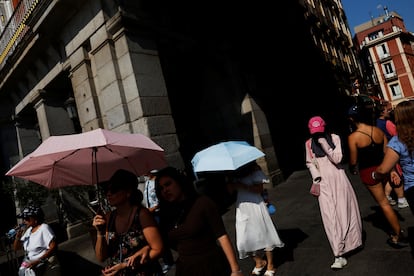
On Monday, Madrid recorded levels of airborne particulates exceeding acceptable limits. City emergency services have urged residents to stay indoors whenever possible and to avoid prolonged walks, especially for people with chronic illnesses, young children, the elderly, and pregnant women.
According to the municipal health service, the city’s atmosphere has a high concentration of aerosols and microscopic solid particles from various sources. These substances can enter the respiratory system and have negative health effects, especially with prolonged exposure.
In Spain, such air pollution episodes are often linked to dust arriving from the Sahara. These are natural phenomena and cannot be entirely prevented, so the main goal is to minimize contact with polluted air. In addition to natural factors, emissions from heating systems, industrial facilities, construction work, traffic, and insufficient street cleaning worsen the situation.
Experts note that both short-term and constant exposure to polluted air may lead to respiratory and cardiovascular diseases. When inhaled, particles are initially trapped in the upper airways, but the smallest ones can penetrate deeply into the lungs and even enter the bloodstream.
People with asthma, chronic lung diseases, cardiovascular conditions, and weakened immune systems, including patients undergoing cancer treatment, are particularly vulnerable to such pollution. The at-risk group also includes children under six, the elderly, and pregnant women, as exposure to harmful particles may negatively affect fetal development and the course of pregnancy.
A high level of air pollution can cause respiratory tract irritation, increase susceptibility to infections, trigger inflammatory processes in the body, and raise the risk of premature birth. Long-term exposure to polluted air is linked to a rise in cancer cases, as particulate matter is classified as a human carcinogen.
Experts emphasize that during periods when other pollutants, such as ozone, combine with airborne particles, the negative effects can intensify. In recent days, Madrid has also recorded high ozone levels, further complicating the situation.
City authorities recommend that residents monitor air quality updates, stay indoors when possible, and minimize physical activity when outside. Special attention is advised for the well-being of children, the elderly, and those with chronic illnesses.











